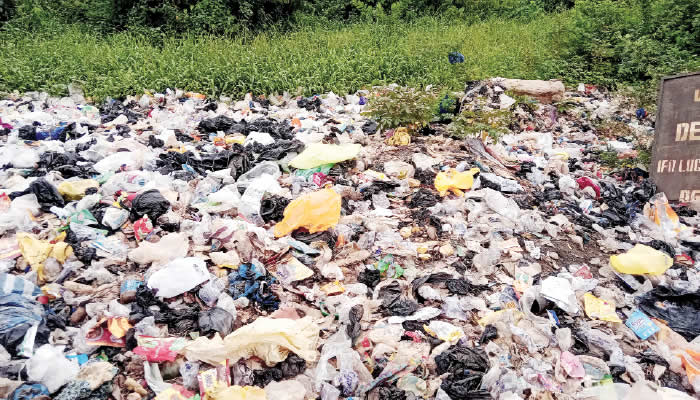At the recent 12th West African Clean Energy and Environment Trade Fair and Conference in Lagos, waste management experts revealed alarming statistics about the economic impact of unrecovered packaging in the Fast-Moving Consumer Goods (FMCG) and food and beverage sectors. Annually, Nigeria loses approximately ₦3 trillion due to losses associated with unrecovered waste, particularly packaging. Lagos State alone spends between ₦9 billion and ₦12 billion each year on various waste management activities, which include household disposal, street cleaning, and landfill management, as well as efforts to mitigate public health risks and flooding. The conference, themed “Sustainability Showcase: Stimulating Green Economy Investments,” was organized by the Delegation of German Industry and Commerce in Nigeria and aimed to address these pressing environmental and economic concerns.
Dr. Adebola Odunsi, the CEO of Integritas Limited, highlighted the critical gap between waste generation and recovery in Lagos during his presentation titled “From Waste to Wealth: Reimagine, Reuse and Reinvent.” Despite the city generating between 13,000 and 15,000 metric tonnes of municipal solid waste daily, the recovery rate of recyclables remains frustratingly low at just three to five percent. This significant disparity translates to an estimated daily loss of ₦400 million in the informal economy due to unrecovered PET plastics, underscoring the urgent need for a comprehensive change in waste management approaches. Odunsi noted that by boosting the recovery rate to between 95 and 97 percent, Lagos could potentially capture a significant portion of the $13 billion global circular economy.
To effectively harness waste as a resource, Odunsi advocated for innovative solutions within the circular economy framework. He introduced the concept of waste valorisation, which involves exchanging waste directly for value, suggesting that such mechanisms could be integrated into financial models to transform waste management into a more profitable and sustainable venture. Additionally, he proposed that by diversifying waste-to-wealth strategies, waste could be traded for essential services, thereby enhancing community development and resource recovery simultaneously. His emphasis on a transformative approach resonates with the larger narrative of sustainability and economic growth, particularly given Lagos’ high consumption patterns.
The importance of renewable energy and sustainable waste management was further highlighted by the Consul-General of the Federal Republic of Germany, Weert Börner. He underscored the necessity for Nigeria to adopt these practices as part of its long-term development strategy, especially in the face of global environmental challenges. Börner shared insights into Germany’s strides in renewable energy, revealing that as of the first half of 2024, approximately 60 percent of the nation’s electricity was generated from renewable sources like wind, solar, and biomass—a substantial increase from 35 percent in 2018. This growth not only contributes to environmental sustainability but also creates more job opportunities in renewables compared to traditional energy sectors, fostering industrial innovation and decentralized power production.
The Project Manager at the Competence Centre for Energy and Environment, Mr. Hillary Elegeonye, also emphasized the urgent need to tackle Nigeria’s waste management issues through education and the implementation of new technologies that support circular economy principles. He identified inadequate waste management as one of the nation’s most pressing challenges, advocating for circular economy solutions as a viable path forward. Elegeonye reiterated the conference’s focus on education and the promotion of innovative sustainability strategies designed to attract green economy investments in Nigeria, demonstrating a collective commitment to redefining waste management.
In summary, the urgent insights shared at the conference reveal a critical juncture for Nigeria, particularly Lagos, in addressing the dual challenges of waste management and economic viability. With staggering financial losses attributed to unrecovered packaging in the FMCG and food sectors, the call for transformative waste management strategies within a circular economy framework can no longer be ignored. Collaborative efforts bolstered by innovative financial models, combined with the adoption of renewable energy, hold the potential for significant environmental and economic benefits. Continued engagement and education of stakeholders—ranging from government and industry to local communities—will be essential in harnessing the value of waste, thereby promoting a sustainable future for all.














